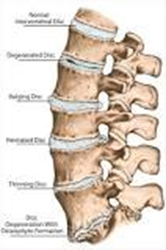A nurse is caring for a client who has multiple sclerosis and is experiencing progressive multifocal leukoencephalopathy (PML). Which of the following medications should the nurse recognize is associated with the development of PML?
Pregabalin
Natalizumab
Furosemide
Metoprolol
The Correct Answer is B
Choice A Reason:
Pregabalin is incorrect. Pregabalin is a medication used to treat neuropathic pain, seizures, and generalized anxiety disorder. It is not associated with an increased risk of PML.
Choice B Reason:
Natalizumab is correct.: Natalizumab is a monoclonal antibody used to treat relapsing forms of MS. It is associated with an increased risk of developing PML, particularly in individuals who are JC virus antibody positive. Regular monitoring of JC virus antibody status and clinical vigilance is required when using natalizumab to reduce the risk of PML.
Choice C Reason:
Furosemide: Furosemide is a loop diuretic used to treat edema and hypertension. It is not associated with an increased risk of PML.
Choice D Reason:
Metoprolol is incorrect .Metoprolol is a beta-blocker used to treat hypertension, angina, and heart failure. It is not associated with an increased risk of PML.
Nursing Test Bank
Naxlex Comprehensive Predictor Exams
Related Questions
Correct Answer is A
Explanation
Choice A Reason:
Decreased blood pressure is correct. Decreased blood pressure (hypotension) is the priority finding to monitor for because it is indicative of a severe allergic reaction known as anaphylaxis. Anaphylaxis is a potentially life-threatening condition that can lead to shock, organ failure, and death if not promptly treated. Hypotension in the context of an allergic reaction suggests widespread vasodilation and increased vascular permeability, resulting in a decrease in blood pressure.
Choice B Reason:
Stomach pain is incorrect. Stomach pain may indicate gastrointestinal distress or adverse effects of the antibiotic, but it is not typically as immediately life-threatening as decreased blood pressure in the context of anaphylaxis. While abdominal pain should not be ignored, it is not the priority finding when assessing for signs of anaphylaxis.
Choice C Reason:
Urticaria is incorrect. Urticaria, also known as hives, is a common allergic reaction characterized by raised, itchy welts on the skin. While urticaria can be uncomfortable and distressing, it is not immediately life-threatening. However, urticaria may be a precursor to more severe allergic reactions, such as anaphylaxis, so it is still important to monitor closely.
Choice D Reason:
Lightheadedness is incorrect. Lightheadedness may occur as a result of hypotension in the context of anaphylaxis, but it is not as critical as directly monitoring blood pressure. Lightheadedness may also be caused by other factors, such as anxiety or dehydration, and may not always indicate a severe allergic reaction. While it is important to assess for lightheadedness and monitor the client's overall condition, it is not the priority finding compared to decreased blood pressure.
Correct Answer is ["B","C","D"]
Explanation
Choice A Reason:
Hyponatremia is incorrect. Hyponatremia refers to low sodium levels in the blood and is not typically associated with degenerative disc disease. This finding is unrelated to the pathophysiology of DDD.
Choice B Reason:
Paresthesia is correct. Yes, paresthesia, which refers to abnormal sensations such as tingling, numbness, or burning, can develop with degenerative disc disease. Nerve compression or irritation due to disc degeneration can lead to paresthesia in the affected area, typically radiating along the nerve pathway.
Choice B Reason:
Foot drop is correct. Yes, foot drop can develop with degenerative disc disease, especially if the condition leads to nerve compression or damage in the lumbar spine (lower back). Foot drop refers to difficulty lifting the front part of the foot due to weakness or paralysis of the muscles involved in dorsiflexion.
Choice D Reason:
Intermittent pain is correct. Yes, intermittent pain is a hallmark symptom of degenerative disc disease. Pain may vary in intensity and may worsen with certain movements or activities. Individuals with DDD may experience episodes of acute pain, as well as chronic, persistent discomfort.

Whether you are a student looking to ace your exams or a practicing nurse seeking to enhance your expertise , our nursing education contents will empower you with the confidence and competence to make a difference in the lives of patients and become a respected leader in the healthcare field.
Visit Naxlex, invest in your future and unlock endless possibilities with our unparalleled nursing education contents today
Report Wrong Answer on the Current Question
Do you disagree with the answer? If yes, what is your expected answer? Explain.
Kindly be descriptive with the issue you are facing.
